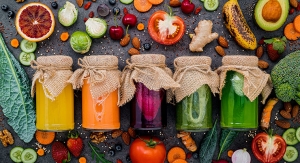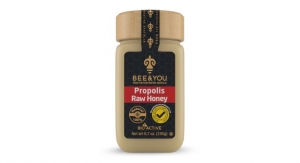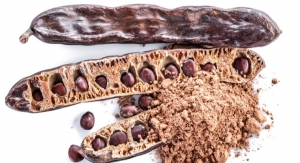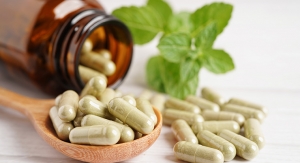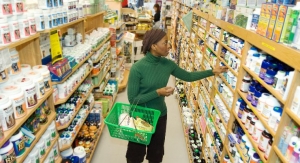Sean Moloughney02.02.09
With uncertainty surrounding the year ahead for ethical and sustainable industries due to the global economic slowdown, Organic Monitor has offered its predictions on several specialist industries.
1. Organic Foods
Global sales of organic food and drink have been increasing by more than $5 billion a year, reaching $46 billion in 2007. Positive growth is expected to continue in 2009, however, slower growth rates are envisaged in countries affected by the financial crisis.
The UK market has been the most adversely affected because of the harsh economic climate reducing consumer expenditure. Other countries have been less affected with double-digit growth still continuing in northern European countries. Although consumer demand for organic foods remains high, increased price sensitivity is leading consumers to “trade downward.” Thus, organic food sales from discounters and other low-cost retailers are increasing at the expense of other retailers. Retailer private labels are also becoming more popular than manufacturer brands.
2. Natural Cosmetics
Global sales of natural and organic cosmetics are increasing by more than $1 billion a year. As for organic foods, most demand is concentrated in Europe and North America. Preliminary research shows that European sales exceeded $2 billion for the first time in 2008.
Healthy market growth rates are continuing in 2009, with most growth observed in mainstream retailers like supermarkets, drugstores and pharmacies. Retailer private labels are a major driver of market growth; a growing number of retailers are launching certified natural and organic cosmetics under their private labels, offering consumer low-price quality products. However, some rationalization is expected in 2009 due to a large number of brands competing with private labels for retail shelf-space.
3. Fair Trade Products
Consumer demand for fair trade products continues to strengthen in spite of the economic slowdown. Preliminary research indicates that global fair trade product sales exceeded $3.5 billion in 2008.
Growing interest in social and trade issues involving developing countries is driving market growth. Retailer investment is stimulating production of fair trade products; a number of European supermarkets have converted their entire supply chains of certain products to fair trade. The fresh produce category is tipped to show the highest growth in 2009.
4. Natural & Organic Ingredients
Slowing demand from food processors, beverage companies and other end-users is bringing supply in balance with demand. After experiencing several years of undersupply, ingredient prices are expected to decline in 2009. Increased globalization of supply chains is predicted to continue as large ingredient companies spread their production bases.
5. Soya & Functional Foods
Dairy alternatives are continuing to gain popularity across the globe. The success of soya milk is leading to high investment in related products, marketed as dairy alternatives and/or functional products. Oat-based dairy alternatives are expected to continue to gain ground in 2009. A major advantage soya and oat-based products have is that they can be marketed on health claims.
Many new functional foods are expected to launch in 2009, however, few are likely to have a long-term presence because of the high rate of product failures in this market.
6. Ethical Textiles
Rising ethical consumerism is fuelling demand for organic and fair-trade textiles. New product launches are expected to continue in 2009 as investment comes in from new producers and retailers.
Organic Monitor also expects sustainability to become increasingly prominent in 2009. Natural and organic product companies are at the forefront of adopting sustainable and ethical business practices. This development is leading to some convergence between product sectors. Indeed, many new organic product launches contain fair trade ingredients. The number of carbon neutral companies is also expected to increase in 2009.
1. Organic Foods
Global sales of organic food and drink have been increasing by more than $5 billion a year, reaching $46 billion in 2007. Positive growth is expected to continue in 2009, however, slower growth rates are envisaged in countries affected by the financial crisis.
The UK market has been the most adversely affected because of the harsh economic climate reducing consumer expenditure. Other countries have been less affected with double-digit growth still continuing in northern European countries. Although consumer demand for organic foods remains high, increased price sensitivity is leading consumers to “trade downward.” Thus, organic food sales from discounters and other low-cost retailers are increasing at the expense of other retailers. Retailer private labels are also becoming more popular than manufacturer brands.
2. Natural Cosmetics
Global sales of natural and organic cosmetics are increasing by more than $1 billion a year. As for organic foods, most demand is concentrated in Europe and North America. Preliminary research shows that European sales exceeded $2 billion for the first time in 2008.
Healthy market growth rates are continuing in 2009, with most growth observed in mainstream retailers like supermarkets, drugstores and pharmacies. Retailer private labels are a major driver of market growth; a growing number of retailers are launching certified natural and organic cosmetics under their private labels, offering consumer low-price quality products. However, some rationalization is expected in 2009 due to a large number of brands competing with private labels for retail shelf-space.
3. Fair Trade Products
Consumer demand for fair trade products continues to strengthen in spite of the economic slowdown. Preliminary research indicates that global fair trade product sales exceeded $3.5 billion in 2008.
Growing interest in social and trade issues involving developing countries is driving market growth. Retailer investment is stimulating production of fair trade products; a number of European supermarkets have converted their entire supply chains of certain products to fair trade. The fresh produce category is tipped to show the highest growth in 2009.
4. Natural & Organic Ingredients
Slowing demand from food processors, beverage companies and other end-users is bringing supply in balance with demand. After experiencing several years of undersupply, ingredient prices are expected to decline in 2009. Increased globalization of supply chains is predicted to continue as large ingredient companies spread their production bases.
5. Soya & Functional Foods
Dairy alternatives are continuing to gain popularity across the globe. The success of soya milk is leading to high investment in related products, marketed as dairy alternatives and/or functional products. Oat-based dairy alternatives are expected to continue to gain ground in 2009. A major advantage soya and oat-based products have is that they can be marketed on health claims.
Many new functional foods are expected to launch in 2009, however, few are likely to have a long-term presence because of the high rate of product failures in this market.
6. Ethical Textiles
Rising ethical consumerism is fuelling demand for organic and fair-trade textiles. New product launches are expected to continue in 2009 as investment comes in from new producers and retailers.
Organic Monitor also expects sustainability to become increasingly prominent in 2009. Natural and organic product companies are at the forefront of adopting sustainable and ethical business practices. This development is leading to some convergence between product sectors. Indeed, many new organic product launches contain fair trade ingredients. The number of carbon neutral companies is also expected to increase in 2009.






